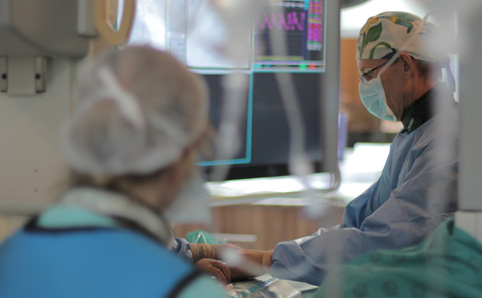 |
|
Cardiologists at the university delivered the first Melody pulmonary valve in Africa.
Photo: Evert Kleynhans
30 March 2012
|
Academics of the Faculty of Health Sciences at the University of the Free State made history in Africa once again this week with the implant of a special pulmonary heart valve.
“Today we are extremely proud Free State citizens,” Prof. Stephen Brown and Dr. Danie Buys from the UFS Department of Paediatrics and Child Health said after they placed the Medtronic Melody pulmonary valve in two young patients at the Universitas hospital in Bloemfontein.
This is the first time in Africa that the Melody valve is placed.
To date there are currently only 3 000 of these valves place in the world.
“It feels incredible to be part of a team of experts from the faculty.”
The Medtronic Melody valve is delivered percutaneously through a catheter from the groin. This operation is for children and young adults who are born with a malformation of their pulmonary valve.
These children often require open-heart surgery at a very young age and later require additional open-heart surgeries to restore blood flow between the heart and the lungs.
Prof. Brown said that of all congenital diseases, heart disease is most common. A lot of children born with heart disease are diagnosed very late and many die without ever receiving specialised care.
In 2011, Prof. Brown and two other cardiologists from the UFS, Prof. Hennie Theron en Dr JP Theron also reached a medical milestone when they were the first cardiologists in South Africa to do a second generation Medtronic CoreValve implant on an elderly patient.